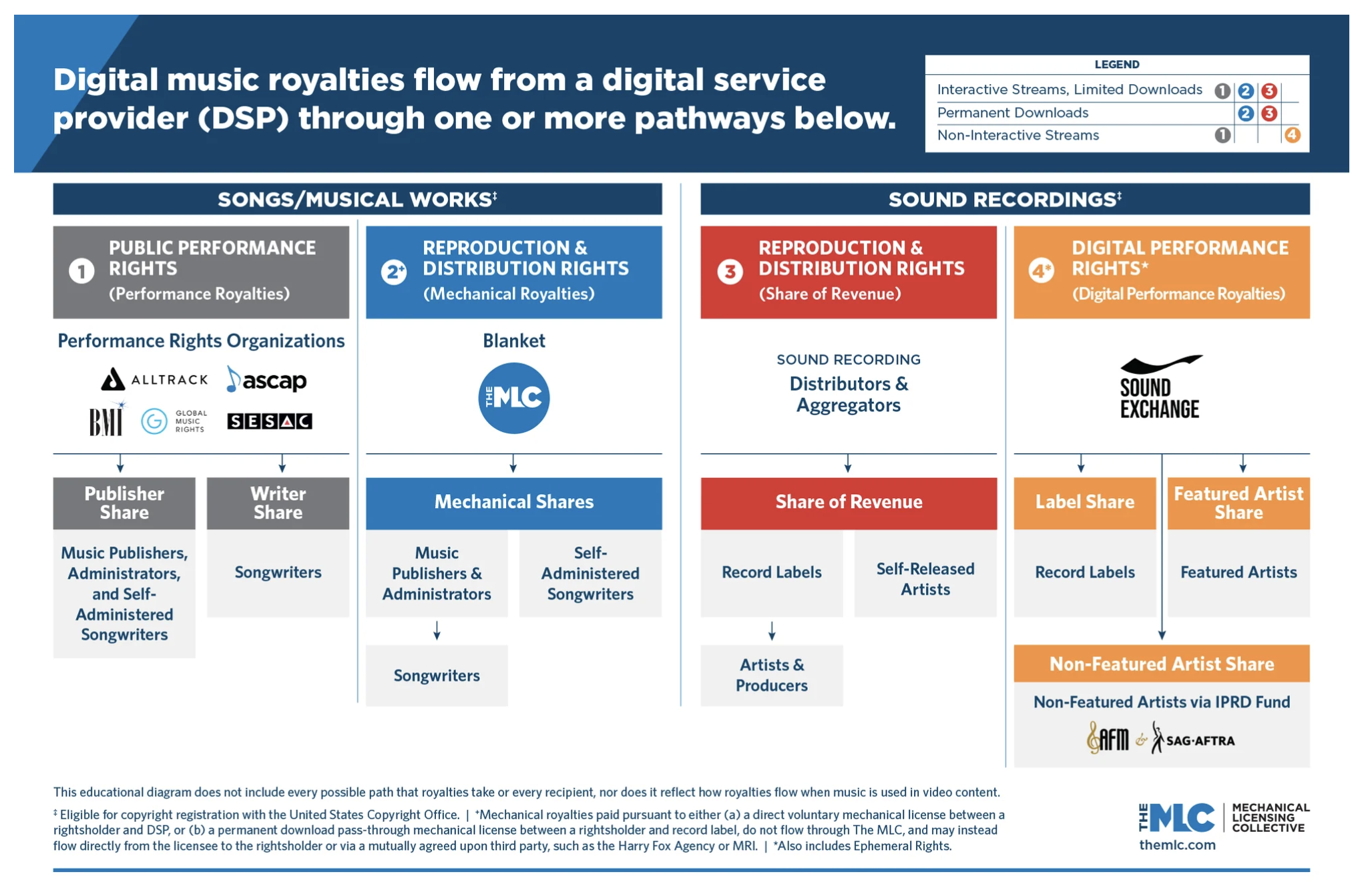Songwriters are paid via 3 royalty/income streams:
Songwriter royalties in America are dictated by processes imposed by the Federal Government! Songwriters cannot increase their mechanical and performance royalty income even if their cost of doing business increases. Outside of negotiated “synch” agreements, songwriters can only deny a license for the first use of a song. Subsequent uses are under a “compulsory” license.
Mechanical Royalty – A songwriter receives a mechanical royalty from the sale of a song on an album, a legal digital download or any physical product. This rate is set by a Copyright Royalty Board made up of 3 judges who meet every 5 years to set rates. The original mechanical royalty was established in 1909 and set at 2 cents. Today, the current rate is 12.4 cents (typically split with co-writers and publishers) for songs under five minutes long. Songs longer than five minutes receive a royalty of 2.39 cents per minute. A cost-of-living increase will happen periodically. In the United States songwriters can join the Mechanical Licensing Collective (MLC) who will collect their digital royalties for no charge since streaming companies are required to fund the MLC.
Performance Royalty – A songwriter receives a performance royalty when their song is performed on terrestrial broadcast radio, television, in a live performance venue or business, or via online streaming services. In the United States, performance royalties are paid through Performing Rights Organizations (PRO) such as ASCAP, BMI, GMR, SESAC and smaller PROs. ASCAP and BMI are governed by consent decrees through the U.S. Department of Justice from WWII requiring them to go to rate court who sets payments.
- Synchronization Fees – A songwriter receives a “synch” fee when his/her song is licensed for use to synchronize with video (i.e., television, movie, YouTube). This fee is negotiated in the marketplace and is typically split 50% to the writers and 50% to the artist and record label. Depending on the specific agreement synch placements may or may not also produce royalty income.
There are other unique payments for song dramatic song uses such as plays, opera, ballet, etc.--called “Grand Rights.” Those rights are generally negotiated with the producer.






